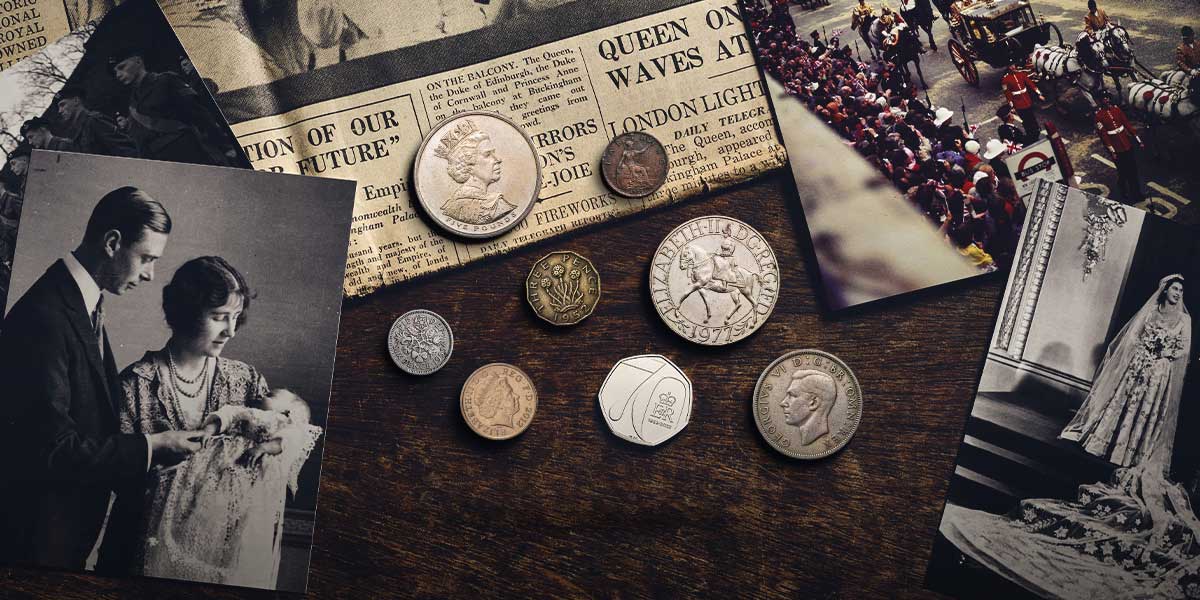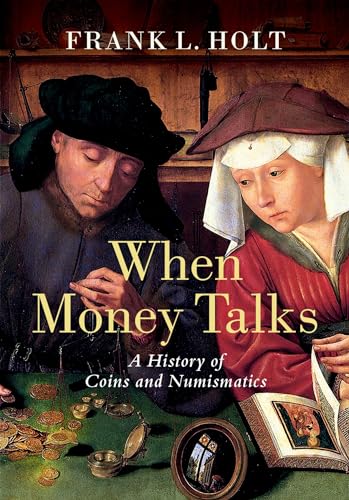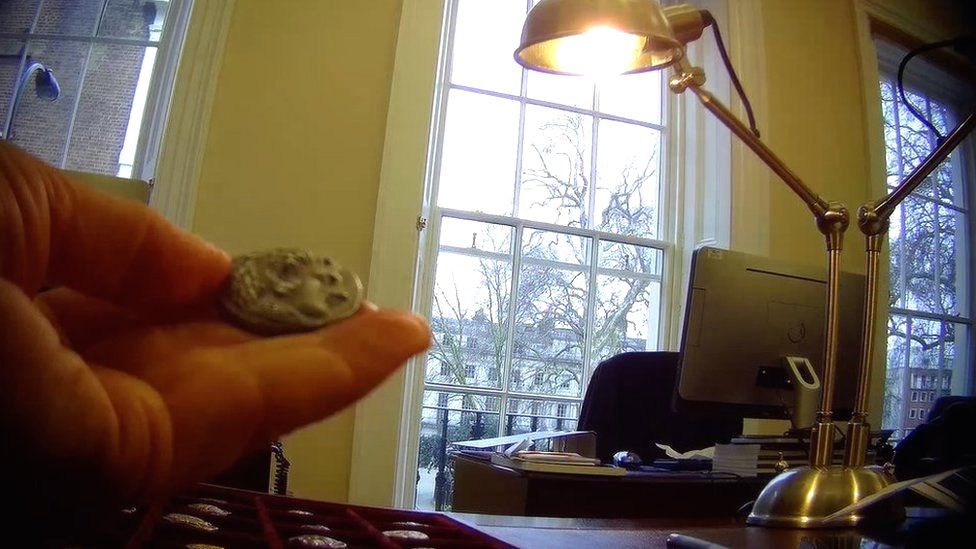Handy Facts On Selecting Forint And Coin Forum
Handy Facts On Selecting Forint And Coin Forum
Blog Article
What Can I Do With A Numismatics Database To Conduct Studies Regarding Security Printing Facilities And Numismatics As A Whole?
To conduct numismatic research on security printing facilities, you will need to use databases that are focused on currency production, security technological advancements in minting and printing. Here's a structured approach to conduct this research: Database Selection: Select databases that are specialized in the production of currency and security printing facilities. Databases can be sourced from national mints like the United States Mint and Royal Mint Central banks like the Federal Reserve Bank or European Central Bank or industry-specific databases.
Define Research Focus: Specify your research objectives. Are you looking to learn more about the operation and history of a specific security printing facility? Do you know about technological innovations or security features that are present in banknotes and coins or the economic consequences of anti-counterfeiting measures? Find your key area of interest to narrow your search.
Search strategy: Choose keywords that describe the facility such as "security printers," "currency producing technology" or "coin minting" and include any specific names of the facilities or geographical areas If you'd like. Use advanced search options to filter results by the type of document, date (such as technical report production statistics, technical report, or security features) or geographical location.
Data Collection: Access to data about security printing facilities, the dates of their establishment, the technological advancements that have been made in printing processes as well as minting techniques, as well as the kinds of security features built into coins and banknotes, as well as any changes or historical developments.
Analyze the information to understand the evolution of security printing technology and their effects on numismatics. Analyze how security features like microprinting, special inks and Holograms have developed over the years to fight counterfeiting. Compare the practices and technologies used by different printing facilities or mints.
Cross-Referencing - Verify your findings by using data from various sources and databases. This guarantees the accuracy and completeness of your research, and gives you an extensive view of the security printing methods globally.
Documentation: Documentation is important. Cite sources and note the method used. Keep track of the specifics of the databases you visited as well as the search terms that you used, and how each source relates to your research question.
Continue to stay updated Stay informed: Security features and printing technologies are constantly evolving. Stay up to date by keeping track of updates from industry publications, mint reports as well as central bank publications for the most recent developments in security features and printing technology.
These steps will allow you to explore databases in relation to security printers. This method allows for a an in-depth study of the advancements in technology, security features, and historical developments which shape the distribution and production of banknotes as well as coins worldwide. Take a look at the recommended helpful resource about krona for website examples including uncirculated, banknote display, uncirculated, coin rarity, antique banknotes, proof coins, peso, proof coins, banknote magazine, copyright detection and more.
How Can I Research Numismatics With Respect To Exhibitions And Show Events By Using A Database?
To conduct research on exhibitions and shows related to numismatics, you will need to use databases that contain details on numismatic activities, including conferences, exhibitions and other events. For conducting such research, here's the best way to do it:Database selection: Choose databases that are specialized in numismatic shows and events. Websites of the most prominent numismatic associations such as the American Numismatic Association, online platforms that list the world's numismatic exhibits, or museums archives are some examples.
Define Research Focus: Specify your research objectives. Are you interested in exploring future numismatic or past exhibitions or conferences that focus on Numismatics? Coin shows in the region? Thematic exhibitions or education activities. Make sure you are able to find the right event for you.
Search Strategy: Include keywords such as "numismatic exhibitions,"" coin shows" or "numismatic event" and, if applicable include the names of particular events, locations, themes or any other pertinent information. Sort results by advanced search features. This includes filtering results by date, event types (such as conferences and exhibitions) and geographic regions.
Find information about recent and forthcoming numismatic exhibitions and other events. Data collection: Gather information about the dates of events, venues organizers, thematic or other collections featured in the exhibit, or by a participating exhibitor, as well as related catalogs or publications. Locate databases that offer a online tours or digital access to exhibition materials.
Examine data to determine patterns, trends, and educational goals for numismatic exhibitions and other events. Evaluation: Evaluate the contribution of various exhibits and shows to increasing public awareness about numismatics.
Cross-Referencing Verify your findings using information from different databases, event listings or official websites. This will ensure the accuracy of your research and complete, providing you with an entire overview of numismatic activities in the world.
Documentation: Record your findings in a systematic manner including citations to sources and noting the methods used. Note the details of the databases you used as well as the search terms that you searched with, and the way each source is related to your research.
Keep Up to Date: Numismatic activities are dynamic, with new exhibitions conferences, shows, and exhibitions regularly scheduled. Keep up-to-date by following updates from numismatic societies, event organizers, and databases to get the most up-to-date information about upcoming events.
By following these steps, you'll be able to effectively use databases to explore numismatics in relation to exhibition and show events. This approach allows you to explore the diversity, educational benefits, and scholarly contributions made by numismatic exhibitions worldwide. See the best helpful site on coin planchet for more tips including rand, banknote storage, coin auction, coin holder, penny, rare banknotes, coin series, coin rarity, coin grading, banknote production and more.
What Can I Do With The Numismatics Database To Find Legal Experts Who Can Assist Me In My Research?
Investigating numismatics in relation to legal experts involves utilizing databases that are focused on numismatic laws, regulations regarding currency and coinage and legal precedents relating to numismatic disputes, and scholarly articles on legal aspects of numismatics. This is a systematic method for conducting this research. Database Selection: Select databases that specialize on legal research, numismatic laws as well as court cases that deal with the numismatic issue, as well as academic papers on legal aspects of numismatics. Some examples include legal research platforms such as Westlaw or LexisNexis and numismatic law journals, as well as publications of the numismatic society.
Define Research Focus: Specify your research objectives. Are you looking for legal frameworks which govern coinage and currencies, numismatic conflicts and regulations for coin production and circulation, or legal interpretations that relate to numismatic authentic and ownership? Find out the key areas of your interest to narrow your research.
Search Strategy: Use keywords like "numismatic laws," "legal aspects" of coinage, "numismatic disputes," along with the legal concept or cases (such a authenticity or ownership, as well as counterfeiting). Utilize advanced search options to filter results by date, jurisdiction (national or international), and legal topics that pertain to numismatics.
Data Collection: Search for relevant legal precedents and legislative texts. Gather case summaries as well as legal analyses, interpretations or pertinent statutes. Also, collect historical perspectives and other information on numismatic law.
Analyse the data and understand the difficulties that numismatics face. Investigate how legal structures affect the field of numismatics, which includes transactions, collection and authentication management as well as international trade. Compare the different legal interpretations and approaches across different countries, historical periods or countries.
Cross-Referencing. Examine what you've discovered by cross-referencing information from various databases, journals, court files and academic documents. This will guarantee the accuracy and completeness of your study. This also provides an extensive overview of the legal landscape for Numismatics.
Documentation: Documentation must be structured, containing references to sources and the methods utilized. Keep track of details on the databases you have accessed, the search terms used, as well as the significance of every source you use to answer your research questions.
Stay updated. Numismatic legal interpretations and laws evolve in response to changes in legislation or court decisions. Stay up-to-date by reading updates from databases of legal information and books about the law of numismatics, and also news from numismatic organizations regarding legal developments.
Use these guidelines to utilize databases effectively to explore numismatics that are based on the opinions of experts in law. This allows you to study the legal frameworks, challenges and scholarly interpretations that connect the subject. Check out the best currency history hints for blog recommendations including austrian coins, coin album, coin marketplace, commemorative coins, proof, banknote errors, rupee, slovak coins, banknote club, numismatic value and more.
What Can I Do With A Database To Research Numismatics Regarding Historical Archives?
Researching numismatics with regards to archives from the past requires databases that are focused on archival collections, historical documents, artifacts of numismatics, and a record of numismatic transactions. Here's a method to conduct this research: Database Selection: Choose databases that focus on historic archives, numismatic collections catalogs of museums, as well as digitize historical documents. National archives websites as well as museum archives. Additionally, you can browse library catalogs and other specialized platforms for numismatics research.
Define Research Focus: Specify your research objectives. Do you want to know the history behind certain collections or coins? Are you interested in the history of transactions which involved numismatic objects the historical context of coinage or the evolution of the financial system? Set out your objectives to guide your study.
Search Strategy: Use keywords like "numismatic archives, "historical coin collection" and "archival records on coinage" depending on the context. Additionally, think about including specific historical periods or themes, geographical regions or numismatics, in the event that they are relevant. Advanced search options let you to filter by date, type of document (manuscripts) or catalog entry, or archives repository.
Data Collection: Access data from archives and historic documents that have been digitized and linked to the field of numismatics. Information such as auction catalogues of historical photographs and coins or correspondence between collectors from institutions can be gathered.
Analyze data to better understand historical contexts, narratives and numismatic artifacts. Consider the use of coins in commerce and trade. Their role in political, cultural and economic exchanges. and how numismatic findings can help us understand the past and its instances.
Cross-Referencing. Check that your research is accurate by comparing the data between multiple databases. This includes archives, museum catalogues, and historical books. This will guarantee accuracy and the completeness of your study. It also provides an extensive overview of the history of numismatics, as documented in the archives of historical times.
Documentation. Write down your research findings, including the sources you utilized and describing the methods used. Note the details of the databases used as well as search terms used and the importance of every source you use to answer your research questions.
Stay Up-to-date Keep Up-to-date: Historical archives and numismatic discoveries continue to be investigated and documented. Check for updates from archive repositories. museum collections. and books on scholarly research to keep up-to-date with the most recent discoveries in the field of numismatics.
Databases can be used to explore the relationship between the numismatics of a historical archive, numismatics and the cultural influence by following these easy steps. This method gives a comprehensive analysis of the cultural influences and historical contexts that numismatic artifacts have had on the society. Read the top gold for site examples including banknote artist, uncirculated coins, banknote errors, banknote value, coin society, real, mint, denomination, coin forum, dinar and more.
How Do I Research Numismatics, In Regards To Industry Consultants?
To conduct research on consultants in the industry, utilize databases that are designed towards individuals, consulting firms, industry reports, or publications from the numismatic society. This is a structured method to conduct this type of research. These include business directories and websites for consulting firms. Additionally, they include publications by numismatic societies.
Define Research Focus: Specify your research objectives. Are you looking for consulting services for numismatic businesses, market research reports on numismatics (or individual consultants' expertise in specific numismatic areas) or emerging patterns identified by consultants in the industry? Find your niche to help you narrow your search.
Search strategy: Use keywords, like "numismatic firms", "numismatic firms" as well as "market reports on coins." If appropriate, also include areas of expertise or geographical regions. Utilize advanced search options to filter results by the date, specialties of consultants, and consulting services offered.
Data Collection: Access information about consulting firms that specialize in numismatics, as well as industry experts providing services to numismatic businesses. Gather information about consultants, such as profiles, and their areas of expertise (market research, collection management and authenticity), client testimonials as well as industry reports and more.
Analyze: Analyze your data to gain greater understanding of the functions and contributions of consultants from the industry. Analyze the strategies and skills used by consultants who offer advice on investing in numismatics market trends or collection management.
Cross-Reference: Check the validity of your study by cross-referencing data from multiple directories, databases of consulting companies, publications and reports published by numismatic societies as well as reports from industry organizations. This will ensure that your research is reliable and thorough, allowing you to get an entire view of the world of consulting the field of numismatics.
Documentation: Document your findings in a systematic manner including citations to sources and a note of the methodologies you employed. Provide a detailed description of the databases you utilized, search terms, and the relevancy of your sources to your question.
Stay informed: Consultancy services and the market trends in Numismatics are always changing as economic and regulatory changes take place. You can stay up to date with industry trends by keeping an eye on updates from websites of consulting firms as well as industry reports.
You can make use of databases to investigate numismatics as well as consultants working in this field. This allows for an extensive study of the advice on market analysis, strategic insights and business strategies offered by industry experts. Read the top banknote catalog for blog tips including coin mold, coin mold, currency authentication, legal tender, coin book, zloty, banknote society, banknote forum, gold, currency and more.